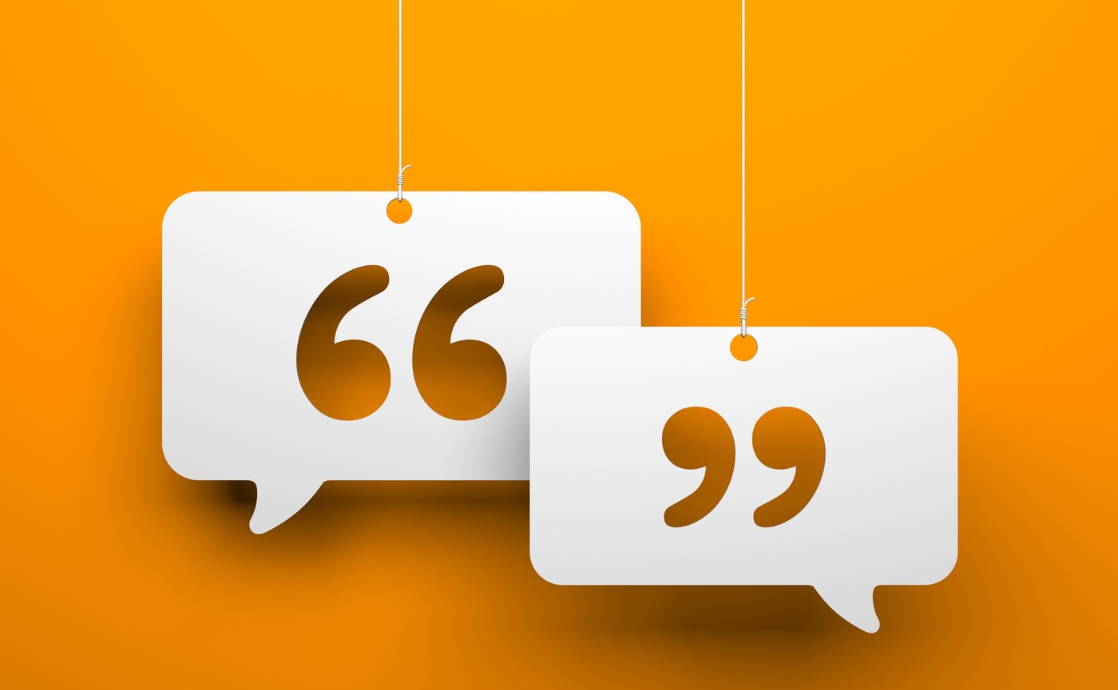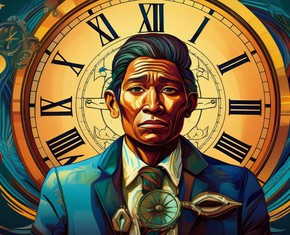The views expressed in our content reflect individual perspectives and do not represent the authoritative views of the Baha'i Faith.
I love to talk. Sentences roll off my tongue, and off my fingers as I write. I express myself constantly.
Sometimes that’s wonderful and appropriate: long discussions with my husband when we go out walking, deep sharing with a friend, exploring ideas and options with my college-age sons, sharing my insights with readers.
But sometimes, I speak when nobody has asked my opinion, when silence would be beautiful, when the story isn’t mine to tell, or the sentiment is unkind, when frustrations and emotions boil up, or when someone else’s voice might be more relevant.
RELATED: Silence: The Most Important Part of Communication
Speech is a powerful tool for educating each other, building bonds of friendship and community, and collaborating to solve problems. We all know that we should be kind in our speech, and let others have a chance to talk, too. But there are actually quite a few reasons to be more careful when we talk, to watch what and how much we say.
The teachings of the Baha’i Faith offer wonderful guidance about the proper use of our speech.
We can all think of times when we wish we hadn’t said something. Once the words leave our mouths, they are impossible to take back. Though they have no physical substance, their effect is real, and more lasting than we think. Baha’u’llah, the prophet and founder of the Baha’i Faith, suggested that words can have an impact that lasts through generations: “Material fire consumeth the body, whereas the fire of the tongue devoureth both heart and soul. The force of the former lasteth but for a time, whilst the effects of the latter endureth a century.”
Backbiting — speaking ill of someone when they are not present — is forbidden in the Baha’i writings, and Abdu’l-Baha said, “Beware lest ye offend the feelings of anyone, or sadden the heart of any person, or move the tongue in reproach of, and finding fault with anybody.”
Talking can also interfere with true listening, a crucial step toward connecting with others. “The fact that we imagine ourselves to be right and everybody else wrong is the greatest of all obstacles in the path towards unity,” said Abdu’l-Baha, and often we form these opinions without hearing others. We eagerly share what we know, and to try to persuade others to change, but this can show little respect or humility, and is generally not effective.
Abdu’l-Baha, the one whose life Baha’is look to as an example, often said very little when meeting someone face to face. He would first listen, at length and deeply, without interruption. Only when his companion had poured out everything would he offer some words of loving encouragement, never telling someone they were wrong, but always calling them to their higher self, to their best qualities. What might that look like, I wonder, in my own relationships?
The Baha’i teachings point out that someone who tries to share help or spiritual insight:
… must never seek to exalt himself above anyone, must wash away from the tablet of his heart every trace of pride and vain-glory, must cling unto patience and resignation, observe silence and refrain from idle talk. For the tongue is a smoldering fire, and excess of speech a deadly poison.
This suggests that too much talk, even when it comes from a good motive, can have a negative effect.
Baha’is utilize other practices to help us change our communication patterns. For example, consultation is a tool prescribed in the Baha’i Faith for reaching decisions and exploring issues to arrive at the truth in a situation. One of the requirements of consultation is that everyone’s voice be heard. We live in a world where this is seldom the case. Some people have power, others do not – and often those without power aren’t listened to or heard. So we can perhaps think about this when we are in a group setting. Has everyone had a chance to share? Are we truly listening when others talk? Can we let go of our own pre-held opinions and listen for truth? In one of his talks in North America in 1912, Abdu’l-Baha said:
Consultation must have for its object the investigation of truth. He who expresses an opinion should not voice it as correct and right but set it forth as a contribution to the consensus of opinion, for the light of reality becomes apparent when two opinions coincide. … True consultation is spiritual conference in the attitude and atmosphere of love.
So, communication is important indeed, but I am also reminded of the importance of action. When we try to build a better world, when we work to improve anything, words come easily; actions are much harder. An insight or idea or solution well-expressed is one step, but until we manifest it in action it has no result! Many times we think we know what should be different in our relationships, our neighborhood, or our nation, but change does not happen without implementation. The Baha’i writings say: “The betterment of the world can be accomplished through pure and goodly deeds, through commendable and seemly conduct …”, not through force or the polarized clash of opposing opinions.
RELATED: The Majestic Birth of a United Humanity
Ultimately, the Baha’i teachings say, we can best lead others through our actions, not our speech:
Guidance hath ever been given by words, and now it is given by deeds. Everyone must show forth deeds that are pure and holy, for words are the property of all alike, whereas such deeds as these belong only to Our loved ones. Strive then with heart and soul to distinguish yourselves by your deeds.
Of course our communication habits, whether related to speech or to action, tend to resist change. Concerted effort is required. Two things are most difficult for me: first, being conscious and present enough to think about my words before I utter them, and asking myself if they’re relevant, kind, truthful, and necessary. The second involves putting aside my ego enough to invite others to speak, and then listening deeply to what they say.
In my own life, I think concentrating on these patterns could bring revolutionary change. I’m vowing to give it a try.
You May Also Like
Comments

















Great to hear from you. Only just seen your reply so hence my slowness. There is an excellent BT podcast interview with Elizabeth De Souza on integrating the arts in community life. She digs deep into the cultural barriers within and outside the Bahai community that address the challenges Bahai communities need to address to integrate the arts... We all need to take lots of small steps once people are willing to break out of old habits. It's fun too. Best wishes, Phil
Thank you for this excellent article. It felt authentic and personal. I learnt a lot. I particulary appreciated the balance you achieved between your own experience and insights and the Bahai teachings you shared.
Best wishes, Phil Koomen (Oxford, UK)
Thank you for your kind words and for taking the time to comment! I'm glad you found the piece enlightening. Some time ago I read your piece "Out of the Woods" but now I see you have three others as well which I will be sure to read! I'm quite interested in craft and in the spiritual possibilities of all the arts. Our community is currently working hard to figure out how to infuse the arts in a broader sense into our community life.